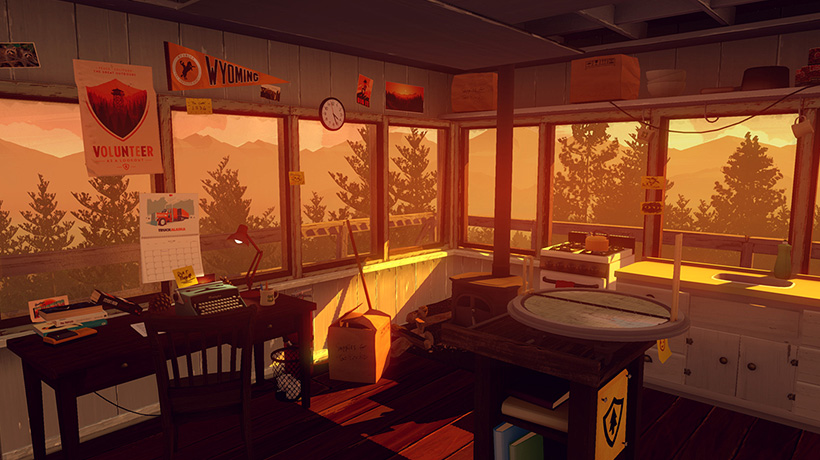*SPOILERS FOR FIREWATCH AHEAD*
Video games are ultimately defined by their interactivity. If you can’t interact and make choices in a video game, it loses the sense of personal responsibility and power that agency brings to the medium. The impact of those choices isn’t truly of consequence as long as you are allowed to make them. In fact, the deliberate crushing of choice impact is a literary design decision that can relate futility and unimportance to the character’s, and by extension the player’s, struggle. Of all the video games I have played that converge and minimize the impact of choice, Firewatch does so to the fullest extent.

Firewatch begins with a startling, humorous, endearing, and empathetic display of immense design skill. Text based responses to candidly written glimpses of life give you all the information you need to decide what you think of the game, and of its central character, Henry. Henry’s actions are controlled by the player, but only to a limited extent. Everything you do, no matter how you do it, is something Henry would have done. This is made abundantly clear by Henry’s specifically fine-tuned and natural response to any given situation. In other games that place emphasis on player choice you might receive a quantitative reward for choosing a certain path, and the rewards and purpose of that path are clearly outlined by broad and generalized moralities. In those games, the delivery of dialogue related to the choice made will normally seem out of character or stiff unless you fly by the rules of the developers and pick an extreme. In Firewatch, you receive nothing of that kind; the creators of the experience make it clear that, despite restricting your actions, each choice will mean something in a way that they can’t in ordinary games. That being said, gameplay is not drastically improved or changed by your choices, Henry does not develop into a different character based on the purpose of your actions, and in total, the only thing that is changed by your choice is the sound byte you hear and the visual you see. Henry is the embodiment of our psychological experience: grasping for rationalization to create a sound identity while action emanates from a seemingly mysterious, detached place. For me, this agency is far more than enough.
All of my actions as Henry, despite their mundanity and lack of consequence, struck an emotional and intellectual chord within me. Every situation is a question to the player, and the answers you give tell you more about yourself than they ever could about Henry and his boss Delilah. Think of Firewatch as a philosophical work tailored to your personal character, and it will bloom into the glorious flower it truly is. The choice to respond sarcastically to one of Delilah’s comments, to lock your deteriorating wife in her bedroom as you go out drinking, to comment on the wildlife you see in front of you, or to throw some troublemakers’ stereo in the lake, have negligible impact on the narrative and characters in general. Instead, they impact the player themselves on a much more revealing and personal level.

As for Firewatch’s central gameplay loop; it will seem pretty familiar to anyone who’s played a “walking simulator” style game before. Walk around, press a button assigned to a random task, learn more about a story (normally one you didn’t actually participate in), add flour to thicken plot, lather with shampoo to increase surface tension, then pop bubble. Firewatch goes a step further than this by adding a walkie talkie with a time-based restriction that allows you to respond to Delilah’s orders and questions. The timing is relaxed enough that you get to think about your response, but quick enough to make dialogue smooth and realistic. If there is any tool in Firewatch built specifically to increase immersion, the walkie talkie is that tool.
When two paths diverged in a yellow woods, Robert Frost chose, and that’s the most important thing he did. Agency and storytelling are two things I find incredibly interesting and important in the growing video game corpus. If you find them singularly interesting as well, Campo Santo’s Firewatch is definitely worth the price of admission. On a similar note, those who enjoyed Fulbright’s Gone Home or any other “walking simulator” are in for a treat in the Wyoming wilderness. Get lost for awhile… Henry needs it as much as you do.
